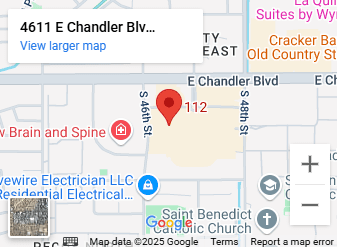Optimized Phoenix Business Transition Guide for Buyers

Acquiring a Phoenix business without a strategic transition plan risks overpaying, operational disruptions, or hidden liabilities—75 percent of local owners aim to exit within ten years, yet only 30 percent have formal succession strategies. In this guide, you will discover how to value a company accurately, navigate Arizona’s legal framework, optimize tax outcomes, uncover profitable deals, and integrate operations post-acquisition. We cover:
- Valuation methods: Asset-, income-, and market-based approaches
- Legal essentials: Contracts, due diligence, licenses, non-competes, counsel
- Tax implications: Capital gains, asset vs. stock purchases, state and federal rates
- Deal sourcing & negotiation: Broker roles, target identification, bargaining techniques
- Operational handover: Employee retention, growth tactics, industry nuances
Whether you’re a first-time buyer or scaling your portfolio, these business transition planning phoenix area secrets will empower your acquisition decisions from offer to integration.
What Are the Key Methods for Business Valuation in Phoenix?

Business valuation in Phoenix determines fair market value by analyzing assets, earnings and comparable transactions. Accurate appraisal reduces overpayment and uncovers growth potential in local industries. For example, an asset-rich manufacturing firm may warrant an asset-based approach, while a recurring-revenue service business often suits income-based business succession planning.
Business Valuation Methods
Business valuation involves assessing a company’s fair market value using various methods, including asset-based, income-based, and market-based approaches. These methods help determine a business’s worth by analyzing assets, earnings, and comparable transactions, which is crucial for business owners.
Damodaran, A., Valuation: Measuring and Managing the Value of Companies (2021)
This research provides a foundational understanding of business valuation methodologies, which is essential for the article’s discussion on valuing Phoenix businesses.
Below is a comparison of core valuation methods used by our advisory network:
| Entity | Attribute | Value |
|---|---|---|
| Asset-Based Valuation | Basis | Tangible and intangible asset book values |
| Income-Based Valuation | Mechanism | Discounted Cash Flow of projected earnings |
| Market-Based Valuation | Benchmark | Sale multiples of comparable Phoenix businesses |
Each method reveals different insights—asset focus uncovers liquidation value, income analysis projects profitability, and market benchmarks reflect local transaction trends.
Understanding these approaches lays the groundwork for informed legal structuring.
How Does Asset-Based Valuation Work for Phoenix Businesses?
Asset-based valuation calculates company worth by summing adjusted book values of tangible assets (equipment, inventory, real estate) and intangible assets (patents, goodwill). Lenders and buyers use this when asset security is paramount. For instance, a restaurant with significant kitchen equipment and real estate may derive 70 percent of its value from physical assets, guiding loan collateral and offer structuring.
What Is Income-Based Valuation and Why Is It Important?
Income-based valuation forecasts future cash flows and discounts them to present value, reflecting profitability rather than balance-sheet figures. This method captures ongoing earnings potential in service and recurring-revenue businesses. Buyers prioritizing sustainable cash flow typically rely on a 5–7 percent discount rate aligned with exit strategy industry risk profiles.
How Does Market-Based Valuation Reflect Phoenix Industry Trends?
Market-based valuation compares sale prices and revenue multiples of similar businesses in the Phoenix area. By analyzing recent M&A data—such as a 3.5x EBITDA multiple in tech services—you align offers with current market appetite. This approach ensures competitiveness and mitigates overvaluation in a fast-growing metro.
When Should Buyers Get a Professional Business Appraisal in Arizona?
Buyers should engage a certified appraiser when preliminary due diligence is complete and before final offer submission. A professional appraisal integrates forensic accounting and local market data, validating your valuation assumptions and strengthening negotiation leverage. Early involvement of our certified valuation team can reduce risk and streamline financing.
What Legal Considerations Should Buyers Know When Purchasing a Business in Arizona?

Legal due diligence in Arizona identifies contractual obligations, liability exposure, and compliance issues before closing. A structured review of documents protects buyers from undisclosed risks. For example, confirming lease assignments and vendor agreements prevents operational disruptions at handover.
Legal Due Diligence in Business Acquisitions
Legal due diligence is a critical step in the acquisition process, involving a structured review of documents to identify potential risks and ensure compliance. This process protects buyers from undisclosed liabilities and operational disruptions by confirming lease assignments and vendor agreements.
Fox, J., Due Diligence: A Guide to Business Acquisitions (2022)
This source supports the article’s emphasis on the importance of legal due diligence in mitigating risks during business acquisitions in Arizona.
- Contract terms and enforceability
- Regulatory compliance for licenses and permits
- Seller representations and warranties
- Restrictive covenants affecting operations
- Scope of indemnification and dispute resolution
These considerations form the backbone of a robust purchase strategy and transition roadmap, linking closely to valuation insights.
What Are the Essential Elements of Purchase Agreements and Contracts?
Below is a list of critical clauses every buyer must include in a purchase agreement:
- Purchase Price and Payment Terms – Specifies total consideration, deposits, and earn-outs.
- Asset and Liability Scope – Defines which assets transfer and which liabilities remain with the seller.
- Representations and Warranties – Seller assertions about financial statements, title, and compliance.
- Indemnification Provisions – Buyer protections against post-closing claims and undisclosed debts.
- Closing Conditions – Pre-closing requirements such as lender approvals and third-party consents.
How to Use a Due Diligence Checklist for Phoenix Business Buyers?
A due diligence checklist organizes review tasks by category, ensuring comprehensive risk assessment before acquisition. The table below outlines key items:
| Entity | Attribute | Value/Action |
|---|---|---|
| Financial Records | Documents | P&L statements, balance sheets, tax returns (3 years) |
| Contracts | Scope | Customer, vendor, lease, and supplier agreements |
| Licenses & Permits | Status | Validity, transferability through Arizona Corporation Commission |
| Assets | Condition | Equipment inspection reports, inventory counts |
| Liabilities | Exposure | Pending litigation, environmental obligations |
How Are Licenses and Permits Transferred in Arizona Business Sales?
Transferring licenses and permits requires adherence to state and local regulations, often overseen by the Arizona Department of Revenue or municipal agencies. Key steps include:
- Submitting transfer applications with fee payment
- Providing seller’s compliance history and business location details
- Securing approval from regulatory bodies (e.g., liquor board, health department)
Completing these steps before closing avoids operational gaps and regulatory fines.
What Role Do Non-Compete Agreements and Seller Representations Play?
Non-compete agreements protect your investment by restricting seller competition for a defined period and geographic area. Seller representations assure accuracy of disclosed information. Together, these legal tools prevent talent poaching, protect customer relationships, and reinforce financial projections uncovered during valuation.
Why Is Engaging Legal Counsel Crucial for Phoenix Business Buyers?
Engaging specialized counsel delivers expert drafting, negotiation, and risk mitigation throughout the acquisition. Legal advisors ensure compliance with Arizona statutes, resolve contract ambiguities, and coordinate regulatory filings. Early counsel involvement accelerates transaction timelines and safeguards buyer interests.
How Do Tax Implications Affect Business Acquisition in Phoenix?
Tax implications in a Phoenix business purchase determine net cost and post-acquisition cash flow. Understanding capital gains, asset vs. stock purchase treatments, and state-federal interactions helps buyers minimize tax burden. For example, choosing an asset purchase can enable depreciation benefits that a stock sale cannot provide.
What Are the Capital Gains Tax Impacts on Business Sales in Arizona?
Arizona treats capital gains as regular income with a flat 2.5 percent rate, reduced to 1.875 percent after a 25 percent subtraction for long-term gains. Federal rates range from 15 percent to 23.8 percent depending on income brackets. Buyers must factor these rates into offer pricing and seller negotiations to reflect after-tax proceeds.
How Do Asset Purchase and Stock Purchase Differ in Tax Advantages?
Below is a comparative view of tax outcomes for buyers:
| Entity | Attribute | Value/Benefit |
|---|---|---|
| Asset Purchase | Depreciation Basis | Step-up in asset basis yields higher depreciation deductions |
| Stock Purchase | Liability Assumption | Buyer inherits all existing tax liabilities without step-up |
| Asset Purchase | Tax Liability | Seller bears tax on gain; buyer benefits from fresh cost basis |
What State and Federal Tax Considerations Should Phoenix Buyers Know?
Key tax factors to review include:
- Arizona Transaction Privilege Tax on tangible personal property
- Federal Section 179 deduction limits
- Net Operating Loss carryforward rules
- Depreciation schedules under MACRS and bonus depreciation
- Sales and use tax on equipment transfers
Incorporating these considerations into your acquisition budget preserves working capital and informs negotiation strategy.
How Can Buyers Find and Negotiate Business Purchases in the Phoenix Area?
Locating and securing a Phoenix business requires market research, professional networks, and proven negotiation tactics. Partnering with experienced advisors uncovers off-market opportunities and competitive valuations.
How Do Business Brokers and M&A Advisors Support Phoenix Buyers?
Business brokers and M&A advisors connect buyers to vetted listings, perform initial financial screening, and facilitate introductions to sellers. Their services include confidential marketing, preliminary due diligence coordination, and structuring offers. Early engagement with our advisory team expedites deal flow and enhances confidentiality.
What Are the Best Strategies for Identifying Profitable Businesses for Sale?
Effective buyer strategies include:
- Monitoring specialized marketplaces and local broker listings
- Analyzing industry growth metrics and neighborhood economic trends
- Attending Phoenix networking events and trade associations
- Leveraging referrals within professional advisors’ networks
What Negotiation Techniques Help Buyers Secure Favorable Deals?
Skilled negotiators employ:
- Anchoring offers with data-backed valuation insights
- Structuring earn-outs to align seller incentives with performance
- Using due diligence findings to adjust price or terms
- Addressing non-price factors (transition support, seller financing)
- Maintaining clear communication and trust to expedite closing
What Are the Best Practices for Post-Acquisition Integration and Growth in Phoenix Businesses?
Successful integration turns acquisitions into growth engines by aligning processes, retaining talent, and capitalizing on local market dynamics. A structured handover plan ensures operational continuity and sets the stage for expansion.
How Can Buyers Ensure a Smooth Business Handover and Transition Period?
Smooth handovers require clear documentation, overlap periods, and stakeholder alignment. Key steps include:
- Creating a transition timeline with milestones
- Conducting joint management meetings to transfer institutional knowledge
- Establishing clear roles for seller and buyer during overlap
- Monitoring performance metrics to address issues early
A disciplined handover minimizes downtime and reinforces customer confidence.
What Are Effective Employee Retention and Management Approaches Post-Acquisition?
Retaining skilled staff hinges on transparent communication, retention incentives, and cultural integration. Effective strategies involve:
- Offering retention bonuses tied to performance milestones
- Conducting employee town halls to address concerns
- Aligning organizational structures and reporting lines
- Implementing training programs for new processes
These measures maintain productivity and safeguard institutional expertise.
How Can Buyers Strategically Grow Their Newly Acquired Phoenix Business?
Growth tactics for Phoenix acquisitions include:
- Expanding service offerings based on local demand analyses
- Implementing digital marketing campaigns targeting metro-area demographics
- Exploring add-on acquisitions or partnerships to broaden capabilities
- Leveraging regional economic incentives and grants
A proactive growth plan capitalizes on Phoenix’s robust economy and competitive business environment.
What Are the Most Common Buyer Questions About Business Transition Planning in Phoenix?
Buyers often ask about process timelines, succession planning basics, due diligence requirements, and liability mitigation. Clear answers accelerate decision-making and reduce transaction risks.
What Is Business Succession Planning in Arizona?
Business succession planning in Arizona involves preparing for seamless ownership transfer through sale, merger, or family succession. It ensures continuity by aligning valuation, legal frameworks, and stakeholder expectations well before closing.
How Long Does the Business Purchase Process Typically Take in Phoenix?
The acquisition timeline in Phoenix generally spans six to twelve months, covering valuation, due diligence, negotiation, legal closing, and regulatory transfers. Efficient pre-planning and advisor coordination can shorten this to under six months.
What Financial Documents Should Buyers Review During Due Diligence?
Critical documents include profit & loss statements, balance sheets, cash flow reports, federal tax returns (three years), equipment inventories, and debt schedules. Reviewing these items confirms revenue quality, expense trends, and liability exposure.
How Can Buyers Mitigate Risks of Undisclosed Liabilities?
Mitigation strategies involve rigorous due diligence, seller indemnification clauses, escrow holdbacks for potential claims, and targeted representations and warranties insurance. These safeguards protect buyer capital and reputation.
How Do Industry-Specific Factors Influence Business Transitions in Phoenix?
Different sectors in Phoenix carry unique valuation drivers, operational challenges, and regulatory requirements. Tailoring your approach to industry nuances improves acquisition success.
What Should Buyers Know About Acquiring Restaurants in Phoenix?
Restaurants hinge on location, lease terms, and health-department approvals. Buyers should assess occupancy costs, local competition, and existing reservation systems. Seasonal tourist patterns also influence revenue forecasts.
How Is Buying a Tech Startup Different in the Phoenix Market?
Tech startups rely on intellectual property, talent retention, and growth projections rather than physical assets. Buyers must evaluate codebase quality, employee stock option pools, and burn rates aligned with Phoenix’s expanding tech ecosystem.
What Are Key Considerations for Service-Based Business Acquisitions?
Service businesses depend on reputation, customer relationships, and recurring contracts. Buyers should review client retention metrics, staff expertise, and digital presence. Properly valuing goodwill and transition support ensures continuity of service delivery.
Early planning, structured valuation, meticulous legal review, and strategic integration define successful Phoenix business acquisitions. By following these proven methods—from precise asset and income-based valuation through tax-efficient deal structuring and post-acquisition growth—you mitigate risks and unlock value. To explore tailored advisory solutions or access our proprietary due diligence toolkit, reach out to our M&A experts today.




